Picture this. You’re sitting at breakfast on March 2nd, 2025, scrolling through your phone, as headlines about the Oscar winners from the night before pop up on your screen. That won Best Picture? What movie even is that?
Unless you’re a film critic, we would venture to guess that most of you haven’t gotten the chance to watch all ten movies — and that makes it pretty hard to come to the Oscars, when you haven’t even heard of all the nominees. Lucky for you, we saw nine of them — the Brazilian film I’m Still Here that wasn’t showing in any San Diego theaters was admittedly too difficult.
But barring that one exception, we’re your resident amateur movie critics. Follow along for bite-sized reviews of every film nominated for the Oscars 2025 Best Picture award, and maybe you’ll find your next watch.
Anora (2h 19m)
It’s not every day that a movie includes romance, slapstick comedy, a hint of tragedy, and class commentary all under three hours — but Anora, the winner of the Palme d’Or at this year’s Cannes Film Festival — certainly did.
Mikey Madison stars as Anora, who goes by Ani, a Brooklyn sex worker who gets the chance to make her dreams of a Cinderella story come true when she meets Ivan (Mark Eydelshteyn), nicknamed Vanya, the son of a rich Russian oligarch who is ostensibly studying in America — but whom we see spending most of his time playing video games, hosting lavish parties, and visiting strip clubs.
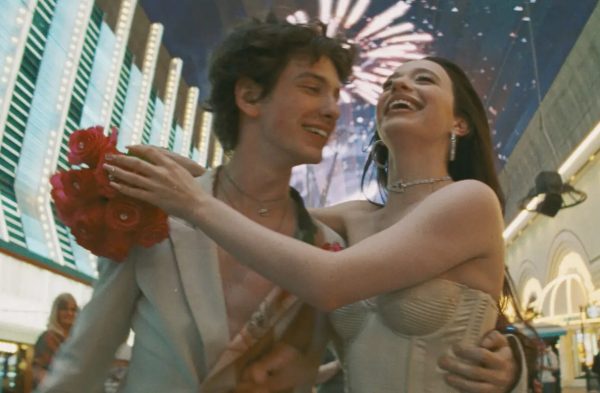
Ani quickly becomes immersed in Vanya’s luxurious lifestyle when he pays her to stay with him for a week, during which he asks her to marry him so that he can acquire a green card and stay in the U.S. His family, however, is none too happy about the marriage and sends their henchmen to the US to annul it. Chaos ensues.
Anora is thought-provoking and fun, interspersing its commentary on exploitation by the upper class and its examination of human relationships with laugh-out-loud moments. However, it can seem somewhat discordant at times, flipping between genres in a way that isn’t entirely seamless, and the characters can read as one-dimensional. Despite this, Anora is well worth watching, and a strong contender for Best Picture.
The Brutalist (3h 35m)
Concrete, harsh, gray, and rough — as true of The Brutalist as the architecture the movie is named after. It is a hulking three and a half hours long, cleanly divided into two parts and an epilogue. It is often gloomy and gray, and it portrays the characters’ struggles with identity, overcoming trauma, addiction, and the tension between art and wealth in a way that is raw, beautiful, and real.

In the 1950s, esteemed architect Lászlo Tóth (Adrien Brody), a Hungarian Jewish Holocaust survivor, is forcibly separated from his wife Erzsébet (Felicity Jones) and niece Zsófia (Raffey Cassidy), and emigrates to the U.S. to live with his cousin Attila (Alessandro Nivola) to try to build a better life for his family will be able to join him in. But when the extraordinarily wealthy — and extraordinarily fickle — Harrison Lee Van Buren (Guy Pearce) commissions a project that Lászlo cannot refuse, he is confronted with the exploitation of immigrants and minorities that thrives under America’s capitalism, and must figure out how to earn respect, follow his passion, and make a name for himself.
The Brutalist is a long movie, but it is utterly captivating and you will no doubt lose track of time. It is dense, filled with subplots about various secondary characters and moving through Lászlo’s life at a pace that makes you want nothing more than to pause and simply rest in the moment with him. You will leave melancholy, but grateful for what you just got to experience.
A Complete Unknown (2h 20m)
It is not a simple task to create a biopic that entertains those who know nothing of the subject while still providing something new for diehard fans, but A Complete Unknown accomplishes this beautifully.

Based on the 2015 book Dylan Goes Electric! by Elijah Wald, the film follows folk singer Bob Dylan (Timothée Chalamet) — often considered one of the greatest singer-songwriters ever — as he begins to make a name for himself in folk music and builds up his reputation to become one of the most beloved musicians in the U.S. It culminates with the intense controversy he caused over his use of electric instruments at the 1965 Newport Folk Festival. It is not an entirely favorable depiction of Dylan, but presents his struggles with fame and the choice between allowing his creativity to flourish and appealing to a larger audience as truthful to the human experience.
This movie is not the place to go for a biographical summary of Dylan’s life; in fact, much of it remains shrouded in mystery, much to the chagrin of his girlfriend Sylvie (Elle Fanning). However, if you’re searching for an examination of the intersection between capitalism and art, a drama about the relationships of a songwriting genius, and the repercussions of fame, A Complete Unknown is a must-watch.
Conclave (2h 0m)
If we could describe Conclave in one word, it would be gripping. Set in Rome, it is an adaptation of Robert Harris’s 2016 novel, and it follows a papal conclave — the process by which cardinals elect a new pope.
Here’s where it gets exciting. Viewers quickly discover that electing a new pope is a political and controversial process. Each cardinal has a desired outcome, strategically vying for (and against) certain candidates. The more liberal popes initially devise a plan to elect Cardinal Bellini (Stanley Tucci), while the more conservative Cardinal Tedesco (Sergio Castellitto) and Cardinal Adeyemi (Lucian Msamati) garner significant support. A mysterious newcomer, Cardinal Benitez (Carlos Diehz), further complicates the situation.
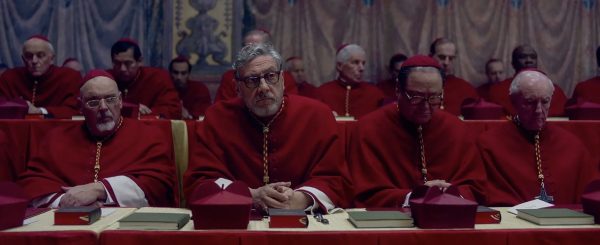
Each day, the cardinals vote for the pope, a process overseen by Cardinal Lawrence (Ralph Fiennes), the protagonist and head cardinal (he is up for election as well). But time and time again, no one gets a majority. Every time the votes are announced, you’re on the edge of your seat, clueless to who will come out on top. There is infighting, betrayals, power plays, and shocking discoveries that constantly flip the dynamic of the conclave on its heels. It is a quiet but engaging thriller.
Within the drama is thoughtful commentary on religion. How much should religion adapt to modern life? What does it mean to be deserving of a religious position? How does religion become political? With an unexpected and captivating final plot twist, this movie will keep you hooked throughout, and leave you reflecting afterwards.
Dune: Part Two (2h 34m)

Dune: Part Two, the sequel to Dune: Part One, is an exhilarating, electrifying — and sometimes overly complex — adaptation of Frank Herbert’s 1965 novel Dune. The movie had a guaranteed audience going in: faithful book readers and Gen-Z watchers excited to see actors Timothée Chalamet and Zendaya perform. But that meant it had to deliver. And for the most part, it did.
Dune: Part Two is the second adaptation of a science-fiction series that follows Paul Atreides (Timothée Chalamet), heir of an aristocratic family. He is charged with ruling Arrakis — a desert planet home to the Fremen people and one valuable substance: spice, necessary for space travel. After an attack, Paul and his mother Lady Jessica (Rebecca Ferguson) are forced to take refuge with the Fremen.
More specifically, the second film follows Paul as he integrates with the Fremen, seeks revenge on his attackers, explores his telepathic qualities inherited from his mother, and grows into his role as the messianic figure leading the Fremen to salvation.
This movie has it all. Politics, religion, power, romance, fanaticism, corruption, and more. Everything about it is big and complicated: endless landscapes of Arrakis desert, climatic fight scenes that have you on the edge of your seat, and entrancing moments where Paul commands crowds of thousands to his will. With all that it does, it sometimes feels too big — like you can’t grasp the full story. But regardless, Dune: Part Two remains a compelling, well-acted, and thrilling film.
Emilia Pérez (2h 10m)
Emilia Pérez has done numbers in the film world. It initially received a deafeningly positive response from critics. But when it went on streaming, the response became deafeningly negative: its 76% Rotten Tomato score from critics was matched with a 34% for regular watchers.
Emilia Pérez was always destined to be controversial. A Spanish language film directed by French director (Jacques Audiard), it follows a lawyer, Rita Mora Castro (Zoe Saldana), who helps the Mexican cartel boss “Manitas” transition into a woman named Emilia Perez (both played by Karla Sofía Gascón).

It is a dramatic film that is unlike anything else we have ever watched. It explores Emilia’s painful and emotional reckoning of the violent life she left behind, and the truer, better life one she tries to find as Emilia — even as her old self haunts her.
Much of the audience’s dislike of the film comes from the musical aspect. A movie clip — in which a song describes the medical aspects of a gender transition in great detail — did numbers on Tiktok. People questioned how such an uncomfortably humorous scene could be the movie being raved about. We, too, struggled with the music aspect, which bodes awkwardly with the movie’s serious themes. Emilia Pérez has also been criticized for its problematic representation, specifically for its flawed depiction of trans people, and for the French director’s failure to portray Mexico and cartels accurately.
This array of issues — from the music, to the trans representation, to the depiction of Mexico — represent the key issue with the movie: it was trying to be too much at once, and failed to be any of those things effectively. It would be impossible to argue that Emilia Pérez is not brave and creative. But its fearlessness and spirit do not save it from its flaws.
Nickel Boys (2h 20m)
Based on Colson Whitehead’s novel, Nickel Boys is a Jim Crow era film following Black teenager Elwood Curtis. Elwood is a bright boy sent to Nickel Academy, a reformatory school inspired by The Arthur G. Dozier School for Boys. Black boys at Nickel (just like at Dozier) suffer racism, abuse, and killing from their white supervisors. A small light at Nickel is a boy named Turner, whom Elwood befriends.
The cinematography is this movie’s absolute treasure. Filmed from Elwood’s first-person perspective, we experience life as him. Viewers don’t see his face (barring photos), until after he meets Turner, to whom this first-person view is also granted. The movie alternates between the pair’s minds, and neither are on camera simultaneously, excluding reflections.

The first-person perspective is so all-consuming that viewers experience everything from body shakes to breathing. It contributes to the film’s stream of consciousness structure: a hazy collection of memories amalgamated together. Turner and Elwood’s story is carefully interrupted with outside material, from a Martin Luther King Jr. speech to videos of Americans in space.
Director RaMell Ross’s construction tells an impossibly unique story. But its unconventional structure and limited view of the protagonists can make this movie frustrating. For a film about such a heart-wrenching topic, it’s not nearly as climatic as it could be. And at times, RaMell’s choices are too out there.
But for those looking for a true experience, the cinematography is unparalleled. If you go in understanding RaMell’s vision, you will be much more likely to leave satisfied.
The Substance (2h 20m)
“Have you ever dreamt of a better version of yourself? Younger. More beautiful. More perfect.”
These are the words cryptically written on the packaging of the substance, the namesake of The Substance. A graphic and outrageous horror movie, it follows 50-year-old Elisabeth Sparkle (Demi Moore), a faded Hollywood star. After being fired from her job as an aerobics instructor due to her age, Elisabeth takes a secret drug: the substance. The concoction turns you into “a better version of yourself,” allowing you to exist in a young, conventionally beautiful body. For Elisabeth, that counterpart is Sue (Margaret Qualley). In racy, colorful leotards with a dazzling smile, Sue becomes Elisabeth’s successor as the next aerobics instructor.

But it comes at a cost. “Remember you are one,” The Substance reminds its users. Sue only exists half the time; every other week, Elisabeth must live in her real body. As Sue abuses the drug to increase time in her youthful skin, Elisabeth begins to deteriorate in an aggressive, gross, and swift manner.
The Substance is disgusting, and weird. We mean it — whatever you’re thinking, it’s worse. As Sue is created, she literally rips through the skin of her creator. As Elisabeth’s decays, her transformation is so gruesome and visual you’ll have to look away. The Substance doesn’t go far. It goes past that.
It’s visceral. It’s a bold commentary on how women’s worth in society is deemed by their looks, and how quickly they are shoved aside. You may flinch at times, but it’s a compelling and powerful story you won’t quickly forget.
Wicked (2h 40m)
Wicked has the potential to be everything you want in a movie. It is a splashy musical, a lesson about acceptance, a gorgeous world to escape into, a political allegory — it is so much packed into three hours that it can only be described in one word: excess.
Wicked is based on a stage musical, which was itself adapted from Gregory Maguire’s novel Wicked: The Life and Times of the Wicked Witch of the West. Maguire’s novel drew inspiration from the book The Wonderful Wizard of Oz and its film adaptation. Wicked is not exactly a new story, but a riveting one nonetheless. It follows Elphaba (Cynthia Erivo), who has a talent for magic and has been ostracized for being green, and Galinda (Ariana Grande), her spoiled and enthusiastic roommate, as they get to know each other and form a complex and unlikely friendship.
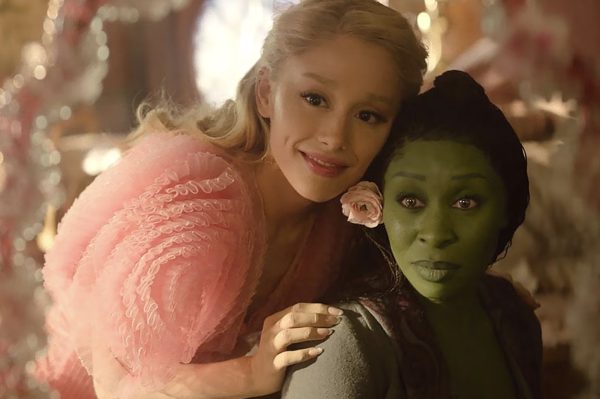
But while they are dealing with their own squabbles and learning to overcome their loathing of one another, something far more sinister is happening: animals, who live and work alongside the other citizens of Oz, are being pushed out of their jobs and losing their ability to speak. Elphaba vows to bring this issue to the wizard, but things do not go exactly as planned.
While it can sometimes feel that there is simply too much happening at once and even a three hour runtime was not enough to fully capture the depth of every subplot and character, Wicked remains a magical movie that will transport you into a world you wish you could be a part of, but also feels oddly familiar. The politics of the film are eerily similar to those we are experiencing today, giving you something to think about as you sing along to “Popular” or try to hit that high note in “Defying Gravity” (just not in a theater, please!).
I’m Still Here (2h 18)
(Due to limited showings in the U.S., we were not able to view this film. The subsequent description is a brief synopsis.)
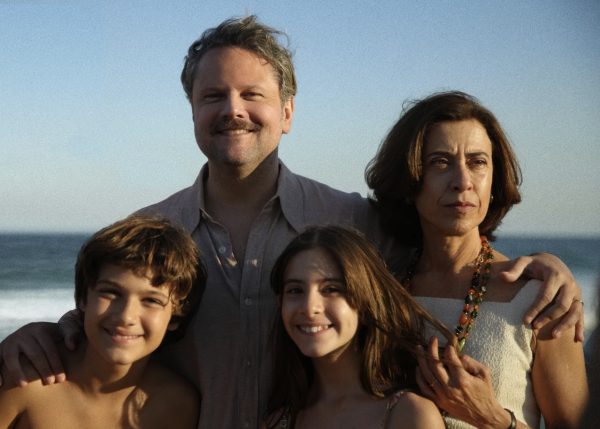
I’m Still Here is a Brazilian film that follows mother Eunice Paiva (Fernanda Torres) as she investigates the disappearance of her husband Rubens, a politician fighting against the 1964-1985 dictatorship in Brazil. For 20 years, a military regime promoting censorship and human rights abuses dominated in Brazil. I’m Still Here is specifically set in the early 1970s, and focuses heavily on Eunices grappling with her husband’s disappearance and the politics of the time.
Based on a true story, it has been received exceptionally well by both critics and fans — it has a 98% on Rotten Tomatoes for regular watchers, and 95% from critics. Fernanda Torres won Best Actress in a Drama at this year’s Golden Globes, and is one of two foreign films nominated for Best Picture. It may not be as commercial as some other nominees, but it’s certainly well-loved by many.


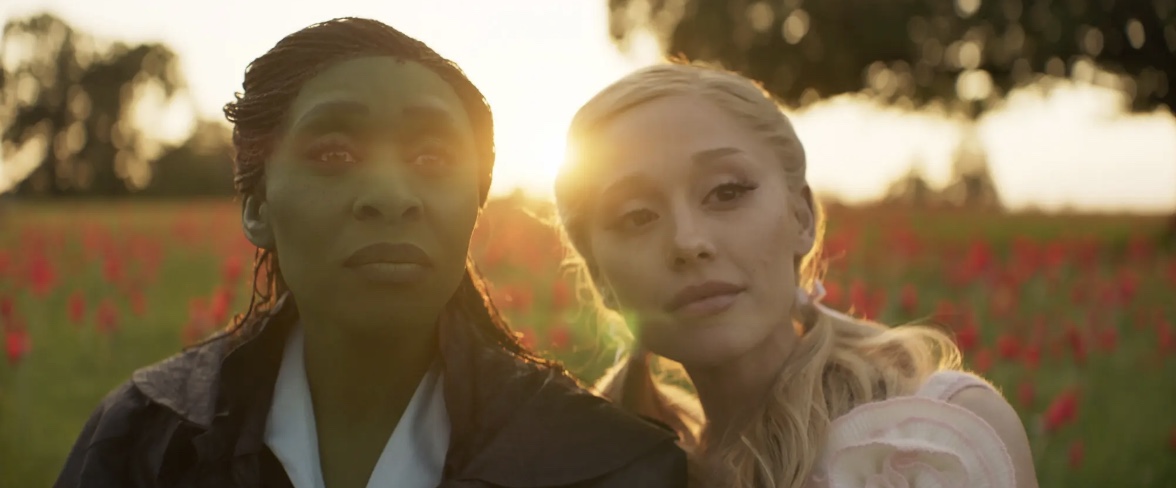


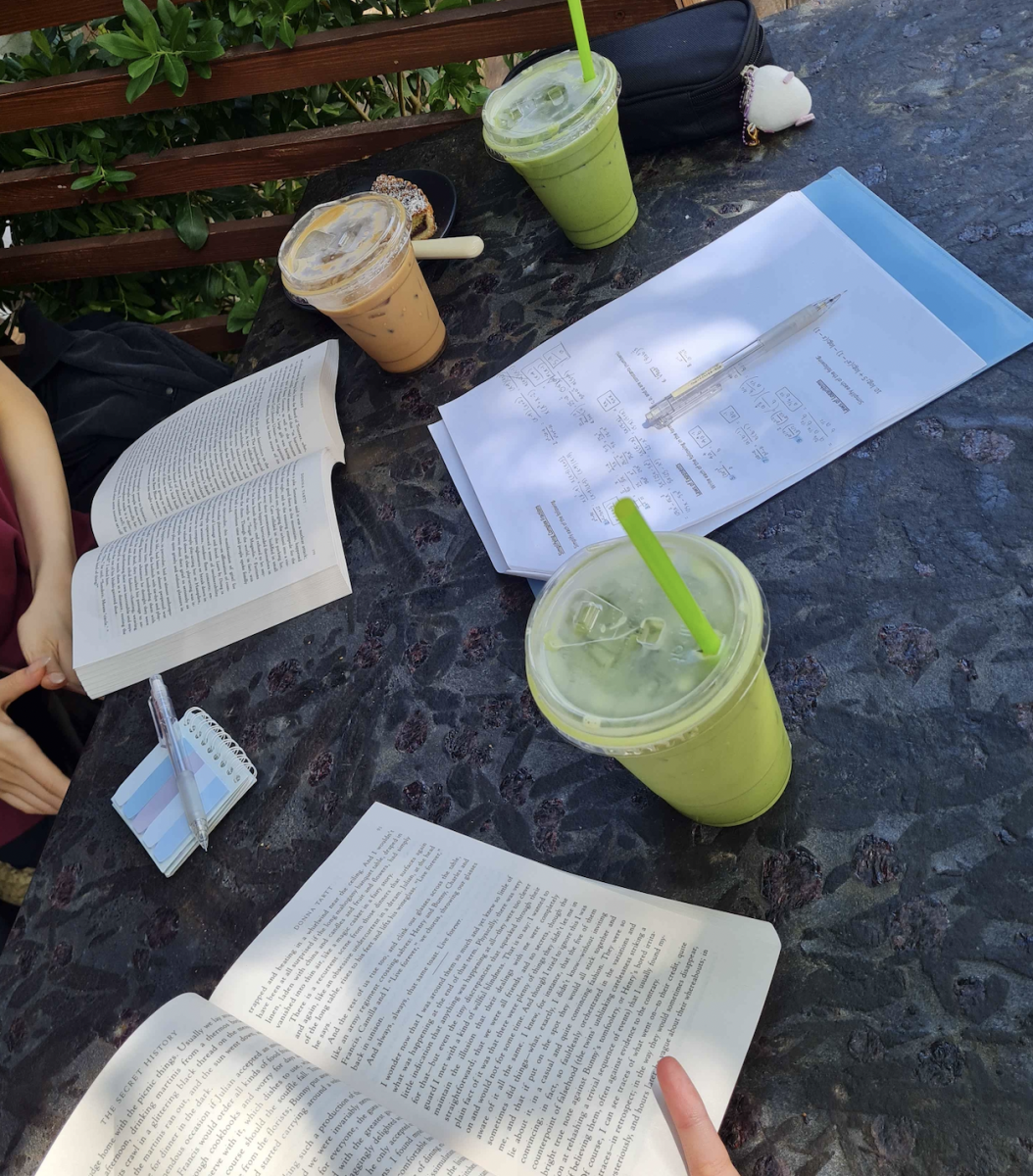



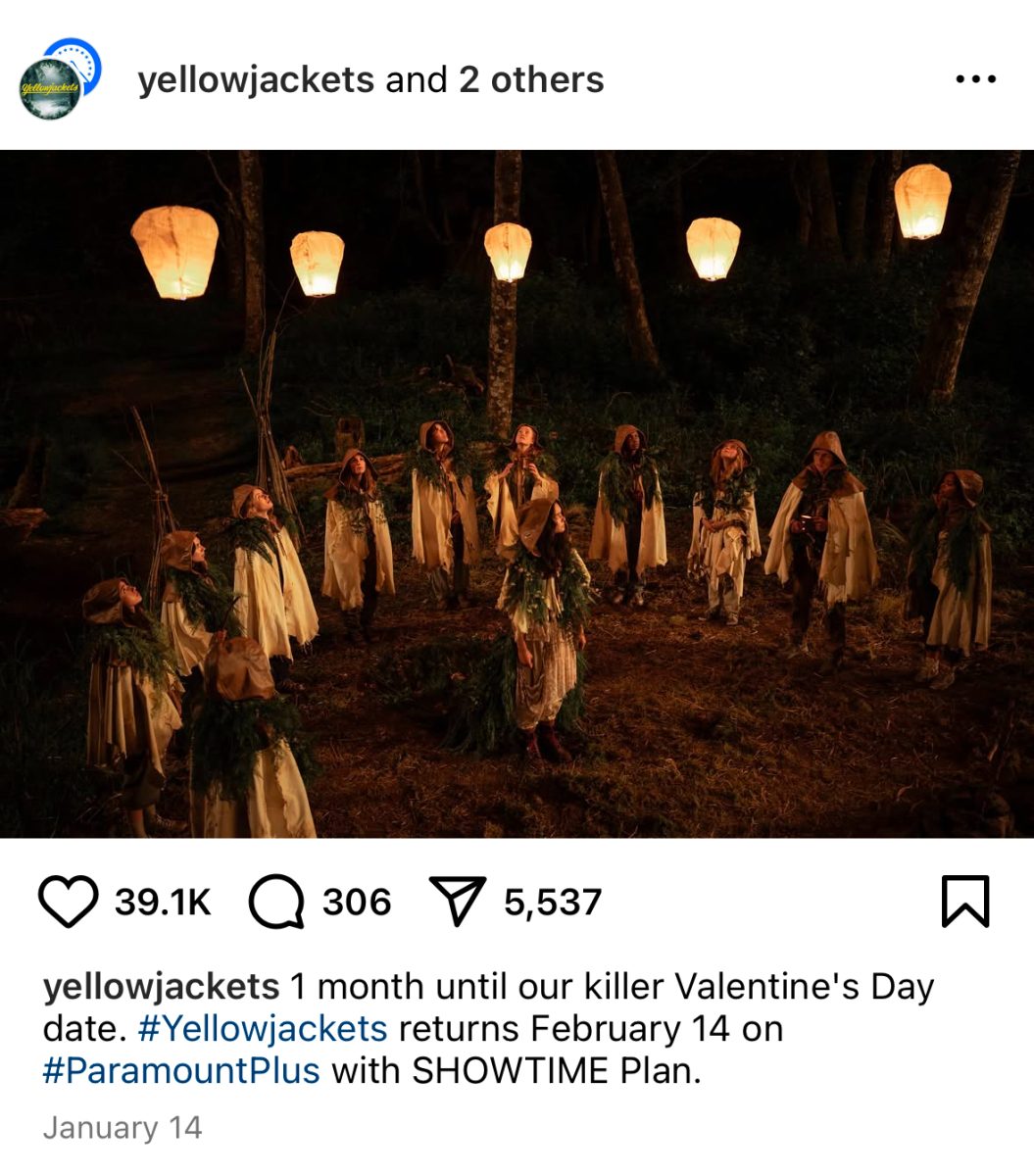






Emeraude Westlake • Feb 19, 2025 at 4:40 PM
Great work! Miss you guys 🙂